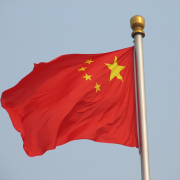The current efforts to combat the new coronavirus epidemic has become the primary task of the Chinese government and people, and production and economic activities across the country have been seriously affected. At the start of February, AgroPages conducted research on Chinese agrochemical companies showing that Chinese pesticide production is currentlybasically stable,especially several major varieties. However, the epidemic has not been completely contained, therefore,hindering pesticide-related logistics anddomestic and foreign trade activities.
We recently conducted both online and offline research into nearly 100 overseas enterprises with Chinese business partners, after collectinginformation on their mainconcerns and difficulties. These companiesare from India, the United States, Brazil, Uruguay, Paraguay, Australia, Ukraine, South Africa, Thailand and Malaysia.
You maynot be able to travel to China for business activities in the near future, is that having a major impact on your business?
According to the survey, 35% of respondents said that the epidemic has had a majorimpact on their businesses, adding thatthey would prefer to have and trust face-to-face communication with suppliers. In particular, two thirds of the nearly 20 Indian enterprises interviewed said their businesses have been considerably affected,due to the fact thatraw materials for Indian agrochemical products are mainly supplied by China. In addition, companies from the United States and Brazil also prefer face-to-face communication, probably because of thelarge business volumes they handle. Nevertheless, more than half of respondents said they could choose to communicate online or get back to China after the epidemic has finished,so the impact is currently not too considerable.
What is your leading business concern?
1. Production and Logistics
Almost all respondents mentioned saidthat it is the supply of agrochemical products. Can manufacturers produce and complete delivery on time? Moreover, the supply of some compounds has already been short since last year, which is also a concern. According to a respondent in the Philippines, many Chinese companies are unable to continueproduction due to the epidemic. Some shipments are alsobeing currently delayed. Another Malaysian respondent said that only one of his Chinese suppliers is able to guaranteea delivery on 15th February while all others have predicted adelay for a certain period of time, considering that existing stocks can onlysustain their needs forone to two months. An Iranian respondent said their New Year is 20thMarch and they are waiting for the situation to improve, so that they canproduce new stocks before the New Year.
Even if production can pick up soon, logistics is still the most major issue. According to a British respondent, international logistics involve many factors, such as the transportation of raw materials from various parts of a country, transportation from the manufacturer to the ocean port, and the speed of customs clearance, as well as the availability of ship and container space. All these factors affect the timely delivery of goods.
An Ethiopian respondent told us that due to the suspension of production, the delivery ofhis order has been delayed. However, he said that he could understand the current situation and will wait for it to improve. Respondents from a South African company said that China’s shipping service to Durban, South Africa, is currently restricted, which may resume in May if they are lucky.
2. Business Visits to China
In addition to the delivery of existing purchase orders, the epidemic outbreak has affected normal business exchanges between China and overseas partners. Respondents from Singapore, Malaysia and Hong Kong talked about their business visits, which have been restricted or even cancelled. Singaporean respondents canceled their plans to travel to China next month, which may be further pending depending on the progress of the epidemic. A respondent from Nigeria said that it is more difficult now to apply for a Chinese visa.
3. Goods at Overseas Ports
At the startof the outbreak, there was much talk and opinions in some countries about rejecting Chinese goods, which caused concern among their business circles. Customers in Southeast Asia and Europe all said that their customs departments did not block cargo ships from China. Arespondentfrom a German enterprise rationally expressed that the rumoredrefusal of cargo is nonsense, as the virus spreads among people and not cargo.
We want to reiterate theWHO’s view once again, goods leaving China will not carry the virus.
4. Will the epidemic cause price fluctuations?
In the long run, many respondents are worried about the possible price fluctuations caused by the epidemic. A Guatemalan respondent believes that there will be a significant increase in the prices of some products. Others said that the impact would not be significant if the outbreak can be contained within a short period of time.
A respondent from a Malaysian company told us that,in general, the price information of herbicides in Malaysia versus the Chinese market has been delayed by two to three months. At present, many major herbicide varieties, such as glyphosate , are still stored in the inventory of local distributors, so the price is still currently low whilethe inventory can be sustained until April and May. Unless the epidemic will continue long-term, prices in Malaysia will remain stable for another three to six months.
Plenty of stocks are currently still available in the European market. However,a respondents from aGerman company said it can have an impact if the cargo ships supposedly departing from China by the end of Februaryfail to leave on time, adding that China’s prevention and control capacity canensure that the delivery of orders will be back to normal as early as possible.
During our survey, our editors received constant greetings, encouragement and blessings from international friends. Some friends sent masks and other protective materials to China from overseas. Everyone believes in the ability of the Chinese governmentand hold the view that the epidemic will pass soon. A respondent from a Kenyan company said,“I strongly believe that all activities will commence shortly and everything will be back to normal in a couple of months. We certainly have a good relationship with our suppliers and continue to cooperate in future too.”
If you have any particular questions or difficulties in your pesticide business operations during thisspecial period of time, please contact us at agropages.vip.163.com or directly contact the writer of this article.
Source: Agropages


